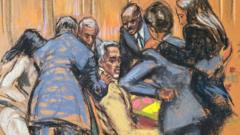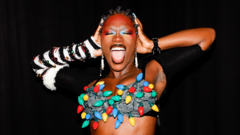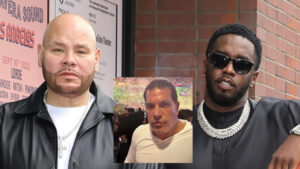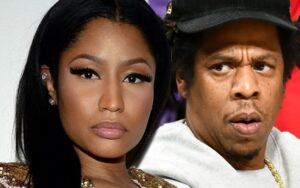Diddy’s trial, wherein he faced allegations of sexual abuse and control over partners, brings to light the persistent issues of misogyny and power dynamics in hip-hop. Despite parallels to Hollywood's MeToo revelations, the music industry has yet to see a seismic shift in accountability, leaving many to wonder how such a culture of silence can be dismantled.
Hip-Hop's Long Overdue Reckoning: The Impacts of Diddy’s Trial on a Silent Industry

Hip-Hop's Long Overdue Reckoning: The Impacts of Diddy’s Trial on a Silent Industry
The recent trial of Sean "Diddy" Combs exposes a culture of silence in hip-hop regarding sexual misconduct and raises questions about accountability and the need for a MeToo movement within the music industry.
In an era increasingly characterized by movements condemning sexual misconduct, the music industry, particularly hip-hop, faces its own reckoning following the trial of Sean "Diddy" Combs. Once viewed as one of the titans who brought rap to mainstream success, Combs found himself in a courtroom addressing accusations of abuse, control, and exploitation by former partner Cassie Ventura, a relationship marred by tales of intimidation and coercion.
During the trial, testimony from Ventura and former assistant Capricorn Clark revealed a disturbing glimpse into Combs' treatment of those around him. Clark's harrowing account included instances of Combs demanding strict obedience from Ventura, signifying a deeply entrenched dynamic of power and control. Ventura accused Combs of not only physical abuse but also of involving her in non-consensual sexual acts, which were orchestrated for his entertainment.
Despite the shocking allegations, the music industry as a whole has been slow to address such issues openly. Activists and industry insiders assert that the culture within hip-hop protects perpetrators, often stalling the voices of survivors for fear of consequence—be it professional reprisals or public ridicule. Cristalle Bowen, a rapper with insights into the industry, stresses that financial motivations often prevent women from speaking out or pursuing justice safely.
Caroline Heldman from the Sound Off Coalition highlights the standard practices that embolden those in power, stating that the tools of silence often include non-disclosure agreements that shield abusers. Such tactics have historically created barriers to accountability, especially against the backdrop of a thriving music industry where financial success is paramount.
The persistence of misogyny in hip-hop, compounded by issues of race, has created an environment where women, particularly women of color, feel compelled to protect an art form that has historically provided a voice for their communities. Experts like Mark Anthony Neal and Treva Lindsey argue that the push for a reckoning within hip-hop must contend with both the legacy of the genre and the complex social fabric surrounding it.
While the fallout from Diddy’s trial may provide a catalyst for change—especially with new legal frameworks allowing historic claims of abuse—the broader call for change in industry practices remains unanswered. New Californian laws have opened pathways for many to file claims, suggesting a shift that could lead to more survivors feeling empowered to break their silence. However, mere legal changes are not enough; industry culture must evolve to support survivors and address systemic issues of abuse.
As public outcry swells, and figures like R Kelly loom large in conversations surrounding music and accountability, the industry faces a significant question. Will the response to Diddy's trial foster a cultural reset, or will the patterns of disregard continue to haunt hip-hop? The outcome strongly hinges on whether tangible measures, focused on enhancing accountability and support for those affected, can be realized.
Without such reforms, the narrative threading through the world of hip-hop—where art and artist are often inseparable—will continue to necessitate a painful examination of its own foundation. Only time will tell if the music world can embrace change or if it will allow the silence to persist.




















